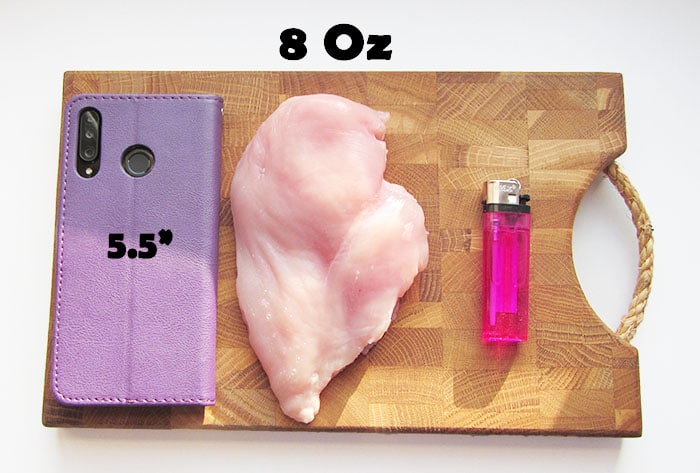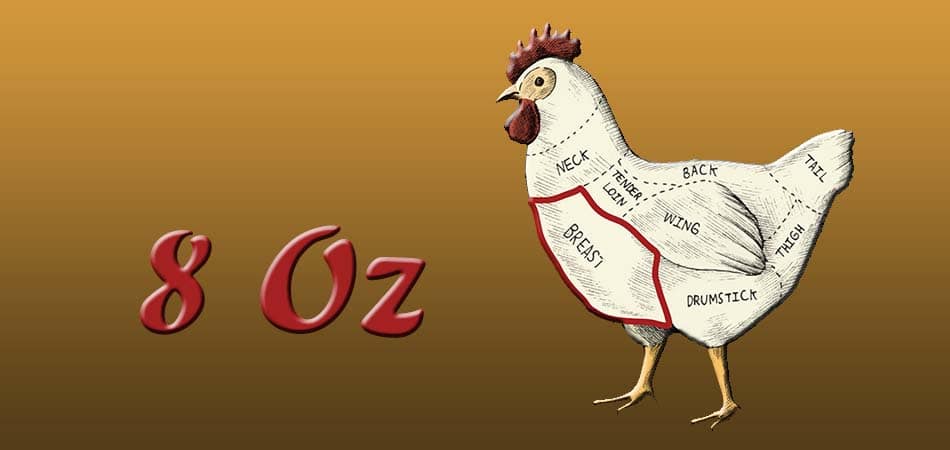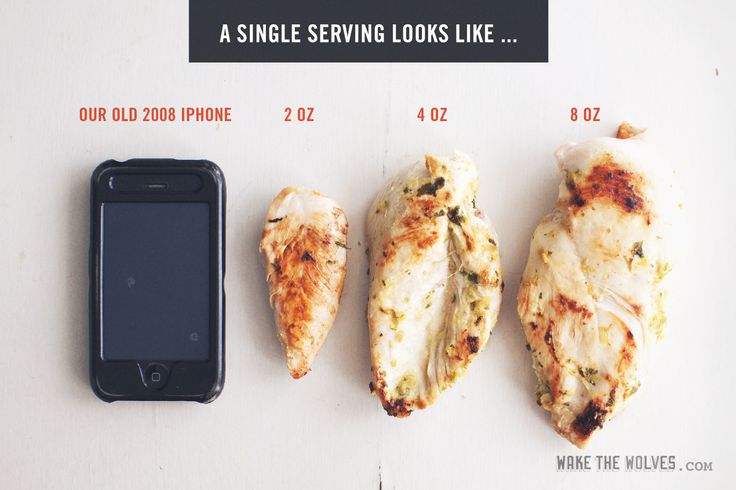Everyone is conscious about their health, and by keeping this in mind today, we are going to talk about the most asked question, “How many calories in 8 oz chicken breast?”. Since we are presenting a comprehensive and exhaustive article on this issue to answer your question, you should already be aware of all of the positives and negatives associated with the subject matter at hand. What possible effects does it have on your health, and can you tell me more about it? Stay connected if you want to learn more about this question and the answer that is provided in full.
Contents
- 1 Why mostly people use chicken?
- 2 How many calories in 8 oz chicken breast?
- 3 What are calories?
- 4 What Deficiency of calories can cause?
- 5 How to know how many calories are a must for a person?
- 6 Why do people mostly consume chicken breast?
- 7 Skinless or with skin which is best to eat?
- 8 How much protein is there in 8 oz of chicken breast?
- 9 Benefits 8 oz chicken breast
- 10 Some drawbacks of chicken breast
- 11 Conclusion
Why mostly people use chicken?
Because of this, we are presenting a comprehensive and exhaustive post on the subject, which means that you should be aware of all of the positives and negatives associated with the discussion of this topic. How might it influence your health, and can you tell me more about it? Keep in touch for further information regarding this inquiry and the answer given in further depth.
The adaptability of chicken is one of the reasons why it is so popular. Chicken can be found prepared in a number of ways in virtually every cuisine from around the world. Additionally, chicken has a flavor that is generally neutral, which makes it simple to combine with a variety of other flavors.
Chicken can be purchased in many different cuts, including the following:
- Breasts
- Thighs
- Drumsticks
- Wings
The number of calories, grams of fat, and other nutrients that are contained in each serving size of chicken are slightly varied.
How many calories in 8 oz chicken breast?
A chicken breast that is eight ounces in size has a total of 200 calories, the majority of which come from protein content. Twenty percent of a person’s daily calorie intake should come from fat. Even though there are no carbohydrates in chicken, a chicken breast that weighs 8 ounces has a total of 2.78 grams of fat in it.

What are calories?
Before discussing the question, we have to know first the clear meaning of calories, why it is important, and what overtaking them can lead to.
The amount of energy contained in one serving of food is measured in calories. They are necessary for the human body since they are the source of the energy that is required for daily activities as well as the upkeep of the functioning of the body. To keep their weight at a healthy level, people generally require a particular number of calories to be consumed each day; however, this number might change depending on a variety of factors, including age, gender, weight, and level of physical activity.
Overtaking it.
However, eating an excessive amount of calories can cause one to gain weight and can also raise one’s chance of developing serious health conditions such as coronary disease, type 2 diabetes, and some forms of cancer. This is owed to the fact that the body stores extra calories as fat, which can eventually lead to obesity if it is allowed to build up over time. It is essential to pound a balance between the calories you consume and the amount of exercise you get in order to keep a healthy weight and lower the risk of certain health concerns.
What Deficiency of calories can cause?
When a person consumes fewer calories than their body requires, they are said to be calorically deficient. Several health issues may arise as a result of this:
Weight loss:If you don’t obtain enough calories, your body will start using fat reserves as fuel. However, if the calorie restriction is too great or lasts too long, the body may start to break down muscles tissue for energy, leading to a loss of muscle and a slower metabolism.
Fatigue:Fatigue and low energy levels might result when the body doesn’t receive enough calories per day. This may make it tough to go about your normal routine or engage in any physical activity.
Weakness:Lack of calories might leave you feeling weak, especially when you’re trying to push yourself physically. This can have an adverse effect on health and fitness levels generally and make it harder to engage in physical activity.
Decreased immune function:When you deplete your body of calories, you leave yourself more vulnerable to disease and infection. It takes a specific quantity of calories for the body to keep its natural defenses functioning properly, and if you don’t get enough of them, you may be more susceptible to illness.
Hormonal imbalances:Calorie deprivation can disrupt hormones that control appetite, metabolism, and other activities. Hormonal abnormalities can include mood swings, decreased libido, and irregular menstruation.
Nutrient deficiencies:A person who reduces calories may also restrict vitamins, minerals, and fiber. Deficits can harm health.
To keep the body running, calorie intake should be balanced. Extreme calorie restriction or skipping meals can trigger binge eating and yo-yo dieting. Talk to a doctor or dietitian about your calorie needs.

How to know how many calories are a must for a person?
The amount of calories a person needs depends on several factors, including:
Age:For obvious reasons, children and teens require more calories than adults do to meet their increased calorie demands.
Gender:Men generally have a higher calorie need than women due to their bigger body size and muscle mass.
Weight:In general, people who weigh more require a greater number of calories to keep their weight stable, while people who weigh less require a smaller number of calories.
Physical activity level:People who lead sedentary lifestyles have a lower calorie requirement for their bodies than those who engage in strenuous physical activity on a regular basis.
The average daily calorie needs for adult men and women are as follows:
- Adult men: 2,500-3,000 calories per day
- Adult women: 2,000-2,500 calories per day
These estimates serve as a general guideline, and they are derived from a level of physical activity that is moderate. In order to determine the right calorie intake for your unique needs, it is essential to speak with a healthcare expert or a qualified dietitian. When making this determination, it is important to take into consideration your age, gender, weight, and degree of physical activity.
It is important to maintain in mind that the foregoing are only ballpark figures and that individuals’ calorie requirements might vary substantially from one another. The most accurate method for determining the number of calories your body requires is to keep a log of the food you consume on a daily basis and to track your weight over a period of time. In order to lose weight, you will need to generate a calorie deficit by consuming fewer calories than your body burns each day. This can be accomplished by eating fewer calories than you burn. To put on weight, on the other hand, you’ll need to swallow more calories than your body burns off in a day. This is the only way to accomplish this goal.
Why do people mostly consume chicken breast?
Chicken breasts are one of the most sought-after dietary options, particularly among bodybuilders and people who are embarking on a quest to reduce their body fat. This is due to the fact that chicken breasts contain a significant amount of lean protein, making them a perfect choice for those who are attempting to lose weight or build muscle through their diet.
People who include chicken breasts in their daily meal plan not only see an enormous improvement in their metabolic health but also see an increase in the amount of muscle mass they possess. Additionally, chicken breasts may be purchased for a low price at almost any supermarket and are readily available there. As a consequence, it does not put a strain on the funds that a family has available for food shopping.
Because of its relatively low carbohydrate content in comparison to its high protein content, this is always included in the diets of elite athletes. On the other hand, chicken breasts are readily accessible at the majority of restaurants, and it is not only inexpensive but also quite simple to prepare. If you are considering adding chicken breast to your meal plan, it is in your best interest to be aware of the number of nutrients that will be present on your plate.
Skinless or with skin which is best to eat?
Because it contains more saturated fats than skinless chicken breast, chicken skin has a reputation for being unhealthy. Though, indulging in some nutritious foods that are heavier in saturated fat and cholesterol than usual on occasion is not detrimental to one’s general health. Please take note that when we talk about healthy sources of saturated fat and cholesterol, such as whole eggs and yogurt with the full amount of milk fat, we are not referring to overly processed meals.
In comparison to skinless chicken breast, chicken skin contains much higher levels of key elements, such as iron. Oh, and have we mentioned that it also has a delicious flavor?
It is necessary to hold in mind that the skin of chicken that has been roasted, grilled, or deep fried has high quantities of advanced glycation end products (AGEs). AGEs are molecules that are formed when carbohydrates react with proteins or lipids. These reactions produce AGEs. They are known to lead to increased oxidative stress as well as inflammation, both of which may increase the probability that you will get certain diseases.
Just keep in mind that moderation is the key to success here. If other foods that are rich in AGEs, such as hot dogs, margarine, pan-fried steak, and bacon, do not make up a significant portion of your diet, then the occasional consumption of chicken skin is not only acceptable but encouraged.

How much protein is there in 8 oz of chicken breast?
There are between 56 and 61 grams of protein in an 8-ounce chicken breast. The amount of protein in chicken varies according to factors such as skin thickness.
The protein content of an 8-ounce chicken breast is roughly 50 grams. Approximately 70 grams of protein can be found in an 8-ounce serving of fried or baked chicken breast.
Raw or uncooked chicken breasts may have a higher protein content than cooked chicken breasts, but you should still read the nutrition label before purchasing—the level of product in a chicken breast. Because the thickness of the skin on each chicken varies, the protein content of different brands and products differs as well. An extra layer of skin on your chicken breast means extra calories.
Eight ounces of chicken breast contains 200 calories, most of which come from protein. Fats account for the remaining 20% of calories. The total fat in an 8-ounce chicken breast is 2.78 grams, yet there are no carbohydrates in chicken.
Benefits 8 oz chicken breast
Well, there is no doubt that chicken has alot an of benefits. Other than it being the main source of protein, it has alot of other benefits too. Like in this listing, we are providing you the benefits of 8 oz chicken, which you should know:
- The fact that protein makes you feel fuller for longer means that eating it could make it easier to maintain a healthy weight.
- It’s possible that resistance training will help your muscles grow faster.
- Protein plays a crucial role in the metabolism of calcium, which is important for maintaining healthy bones.
- Because it contains testosterone, it encourages male fertility.
- Keeping a healthy blood pressure can be accomplished by eating chicken in general, which has been shown to be advantageous in this regard.
- Breasts that have been removed from their skin are an excellent source of vitamin B6. It provides 20% of the daily value that is advised for consumption.
- Chicken breasts that have been removed from their skin are an excellent source of pantothenate. It provides thirty percent of the daily amount that is recommended.
- Tryptophan and vitamin B5 are included in chicken breast, two of the most vital nutrients the body needs. Eating chicken breast during the day can help decrease stress.
Some drawbacks of chicken breast
As we have talked about the benefits, there are also some drawbacks of chicken breast, which you all must know. The drawbacks are the following:
- The vast majority of chicken breasts sold at retail outlets are tainted with germs.
- The consumption of chicken breast containing antibiotics has also been related to urinary tract infections (UTIs), which can become serious if they are not treated.
- According to certain studies, it also has the potential to raise your cholesterol levels, which can cause a number of heart-related disorders such as heart attacks and others.
Well, these were some of the drawbacks of chicken and chicken breast, but don’t be scared; if we use a healthy one and take it from a hygienic shop, it will not show any drawbacks. But remember, intake of anything is harmful, even if it is water.

Conclusion
This was all about the question, “How many calories in 8 oz chicken breast.” Again I explain There are 500 calories in the raw breast with the skin, but if we cook it without skin, there will be 200 calories in the cooked or grilled breast. I hope you all have got your answer about How many calories in 8 oz chicken breast.

